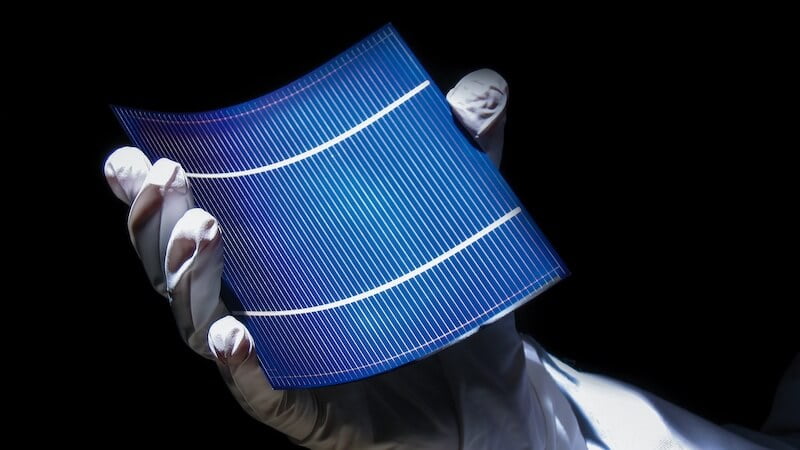
Researchers recently succeeded in producing sturdy clothing with integrated solar cells. The background is an extremely flexible and waterproof photovoltaic film.
More and more companies and institutes around the world are researching even better solar cells. One example is the RIKEN Center for Emergent Matter Science, which recently made further progress in the development of wearable solar technology.
For this purpose, a team at the institute developed a flexible, waterproof organic photovoltaic film. Among other things, this should be able to be integrated directly into any piece of clothing. The advantage: The technology remains fully functional even after contact with water and under the influence of mechanical stress.
Clothing developed with solar cells shows high durability
The system could significantly advance the development of solar-powered wearable devices. The researchers used a novel method to integrate solar cells into textiles. It allows the cells to be woven in without compromising the flexibility of the films through additional waterproof layers. This has been one of the biggest challenges in this area to date.
In their research work, the scientists describe how they applied an anode directly to the active layers. This led to better adhesion between the layers. The team completed the process with a thermal annealing process. In this case, a system exposes the film to a temperature of 85 degrees Celsius for 24 hours. This increases the durability and functionality of the woven solar cells.
Even a wash cycle doesn't affect the solar cells
The performance of the films under extreme conditions has been proven by several tests. Even after four hours in the water, they retained around 89 percent of their original performance. Even after the cells were stretched 300 times under water by 30 percent, they still achieved 96 percent of their performance.
And even a washing machine run couldn't harm the film, which proves the technology's suitability for everyday use. The textiles equipped with solar cells have the potential to be able to charge mobile devices, for example. The researchers are currently planning to further develop their ultra-thin organic solar cells in order to enable their use in everyday portable devices in the near future.
Also interesting:
Source: https://www.basicthinking.de/blog/2024/05/13/kleidung-solarzellen/


